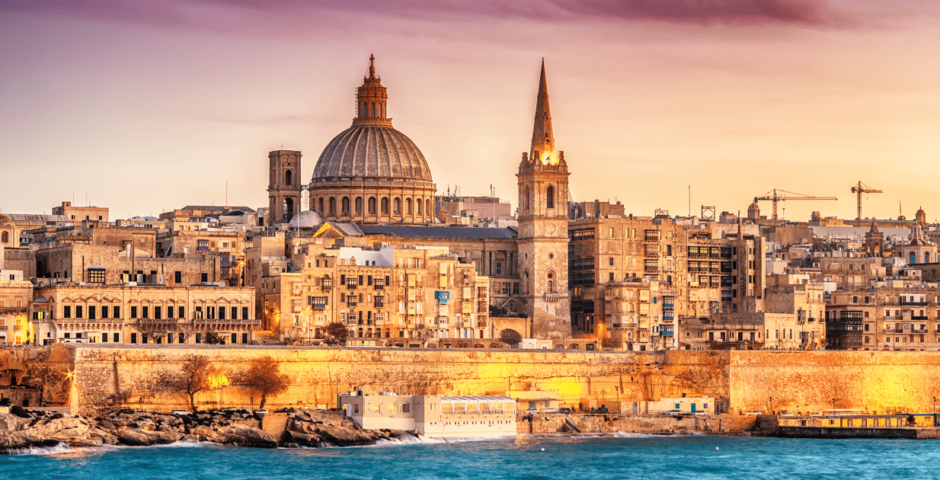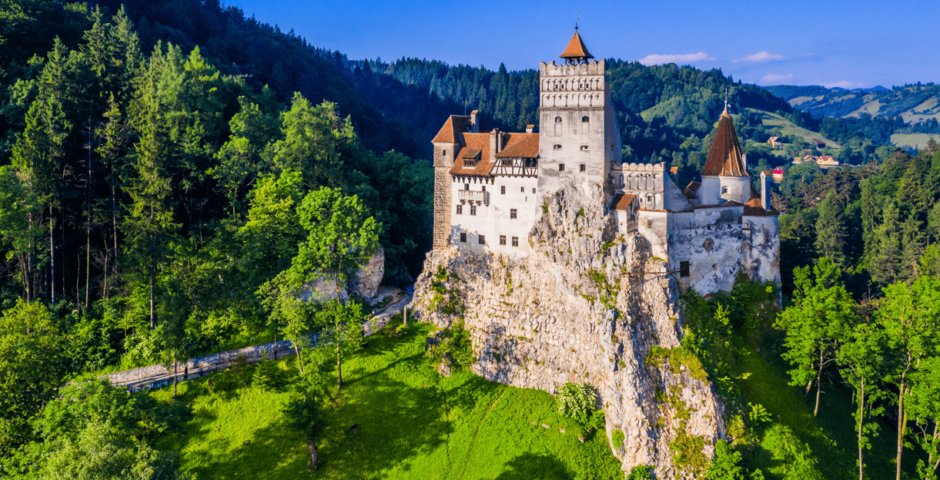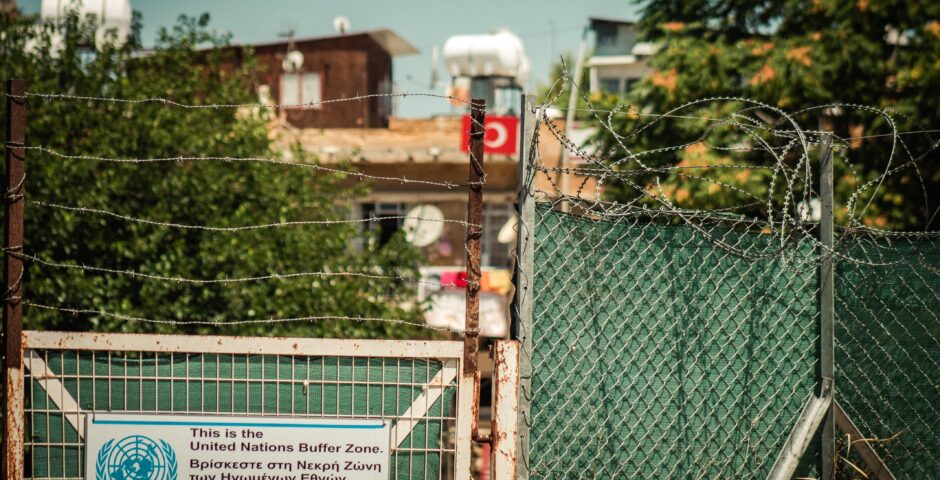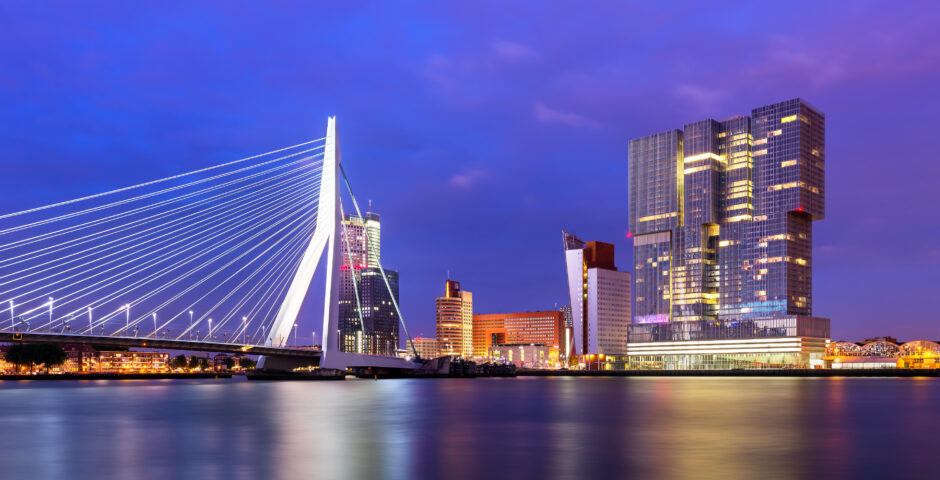Storm clouds over a sunny archipelago?

What are Malta’s biggest concerns ahead of the 2024 EP elections.
Malta: the smallest European Union (EU) member state and one of the sunniest. This Mediterranean country, which used to be a British colony, has also been a film set for Game of Thrones and the 1980 Popeye movie. Malta joined the EU in 2004 and began to use the euro as its currency in 2008.
As the EU prepares for the European Parliament elections in just over two months, it is worth taking a look at this tiny Mediterranean archipelago and discovering what Malta’s biggest concerns are. It is worth doing so especially as the Maltese will be voting for both the European Parliament and their local councils on June 8th.
Malta’s Geography
Malta is an archipelago made up of five islands – although only three of the islands have people living on them. These three islands are Gozo, Malta, and Comino. Along with being the smallest EU member state, Malta is also by far the most densely populated. In 2022, Malta had a population density of 1,657 individuals per square kilometre according to Eurostat. In comparison, Eurostat reported in 2022 that the EU member state with the second highest population density was the Netherlands with 513 individuals per square kilometre.
Due to being a Mediterranean country, Malta has both hot summers and mild winters. The average yearly temperature is 19.5 degrees Celsius and the monthly average ranges from 9.5 degrees Celsius in February to 27.5 degrees Celsius in August. There are no permanent rivers or lakes in Malta.
Catholicism is the state religion in Malta according to its constitution but freedom of religion is also protected within its constitution as well. The two official languages of Malta are English (due to its history as a former British colony) and Maltese. Malta’s laws are written in both of these languages but if there is a disagreement between the two translations, then the Maltese interpretation will be the valid one. 86% of the population prefers using Maltese as a language. French and Italian are also commonly known across Malta.
Malta’s history of European Parliament elections
Malta has had one of the highest rates of voter turnout (percentage of eligible voters who participate) in the European Parliament elections since its first participation in 2004. For example, Malta’s voter turnout in the 2019 European Parliament elections was 72.7% while the overall EU average was 50.66%. This is particularly impressive as voting in the European Parliament election is not mandatory in Malta.
Malta has been a two-party system since 1966 and currently has six seats within the European Parliament. The two main political parties within Malta are the Labour Party (which is centre left) and the Partit Nazzjonalista (which is centre right). Currently, the Partit Nazzjonalista is the opposition party within Maltese national politics. In the last European Parliament elections in 2019, the Labour Party won 54.29% of the votes and the Partit Nazzjonalista won 37.9% of the votes. This translated into 4 and 2 seats respectively.
Although Malta is a two-party system and there does not appear to be a serious chance of this changing, other parties besides the Partit Nazzjonalista and the Labour Party ran in the 2019 European Parliament elections. Some of these parties included ‘Brain, not ego’, the neo-fascist party ‘Imperium Europa’, and the right-wing populist anti-Islamic ‘Moviment Patrijotti Maltin’. Three new parties were running in Malta’s previous European Parliament election. Besides ‘Brain, not ego’ and ‘Moviment Patrijotti Maltin’, the ‘Democratic Party’ was also new.
The final results for Malta’s 2019 European Parliament elections
| Name of Party | Number of Votes | Percentage of Votes | Seats Won |
| Labour Party | 141,267 | 54.29% | 4 |
| Partit Nazzjonalista | 98,611 | 37.90% | 2 |
| Imperium Europa | 8,238 | 3.17% | 0 |
| Democratic Party | 5,276 | 2.03% | 0 |
| Democratic Alternative | 1,866 | 0.72% | 0 |
| Alleanza Bidla | 1,186 | 0.46% | 0 |
| Moviment Patrijotti Maltin | 771 | 0.30% | 0 |
| Brain, not ego | 323 | 0.12% | 0 |
| Independents (not running for a specific party) | 2,674 | 1.03% | 0 |
Population and Cost of Living Concerns
The topic of population density and population growth has been raised as a concern within Malta. Last November, Bernard Grech (who is the leader of the Partit Nazzjonalista) said that uncontrolled population growth is Malta’s biggest challenge, blaming migration (particularly from outside the European Union) for this. This viewpoint that population growth is an issue in Malta can be supported by a survey done by consultancy company EY last October (2023), which found that a significant majority of foreign businesses within Malta believe that the country’s infrastructure is not prepared for population growth. These infrastructure issues include housing shortages, traffic, and concerns about the state of the environment.
During the same month, the Partit Nazzjonalista announced that their plans to limit population growth would include introducing a skills database. This would be so that work permits are only issued for jobs where it is necessary to employ foreign workers and making learning Maltese a requirement for foreign workers.
On an individual level, the Maltese are also concerned about the cost of living crisis. In 2022, the annual average inflation rate in Malta was 6.1% according to the European Commission. In 2021, it had been 0.7%. It is worth mentioning that in 2022, the annual average inflation rate for the euro area was 8.4%. Last November, the Maltese inflation rate dropped to 3.9% but it was no longer lower than the inflation rate for the overall euro area. In the same month, the inflation rate for the euro area was 2.4%.
Maltese concerns about the cost of living appear to reflect these statistics. Last summer, a survey of 950 people found that 73% of those who had responded rated Malta’s cost of living as ‘poor’. Malta’s salaries and salary structures were also rated as ‘poor’ by 59.7% of the respondents. The same survey found that 83% of respondents held a ‘poor’ view of the small archipelago country’s population size which was related to concerns about overpopulation. Maltese concerns about the cost of living were also reflected in a second survey from last summer as well. Out of the 525 total respondents, 32.2% viewed the cost of living as an individual concern, and 18.8% viewed it as a national concern.
Malta’s Corruption Issues
Malta currently faces another major challenge: corruption. Freedom House is an American non-governmental organisation (NGO) that evaluates levels of democracy and freedom internationally based on several factors. These factors include the country’s amount of political rights, civil liberties, and respect for the rule of law. It gave Malta a 2/4 on the criteria ‘Are safeguards against official corruption strong and effective?’ in its 2023 report. Freedom House noted that “official corruption is a serious problem” and “Anticorruption efforts are weak, and senior government officials and businesspeople have been linked to corruption and influence peddling in recent years”. Transparency International, an international NGO battling corruption, said that 28% of Maltese people surveyed in its Global Corruption Barometer “thought corruption increased in the previous 12 months” and 4% of Maltese “public service users paid a bribe in the previous 12 months”.
Malta has also received criticism from the European Parliament on its corruption accusations. Daphne Caruana Galizia was a Maltese journalist who wrote about Maltese politics and corruption. She was assassinated by a car bomb after writing about allegations surrounding Maltese politicians and the Panama Papers. On the 6th anniversary of Daphne Caruana Galizia’s assassination, the European Parliament adopted a resolution to criticise the failure of Malta’s government to solve corruption within the country. The resolution was passed with 437 members of the European Parliament voting in favour, 66 choosing not to vote, and 14 voting against.
From the population’s perspective, surveys would suggest that corruption is not considered to be as serious as the other challenges mentioned above that they face. In a survey reported on by the Times of Malta, 6% of those surveyed viewed corruption as an individual problem and only 15.3% viewed it as a national problem. As stated earlier, more Maltese in the same survey viewed the cost of living as being a more significant problem on both an individual and national level. Concerns about corruption also seem to be split based on political preferences. Those who vote for the Partit Nazzjonalista were much more likely to see corruption as Malta’s biggest concern on a country level than voters of the Labour Party: 28.5% versus 6.5%.
What does this all mean for Malta and the European Parliament?
So, what does this all mean for Malta and the European Parliament? As reported by the Malta Independent, a big question about Malta’s results in the upcoming European Parliament elections is what the distribution of Malta’s six seats will be.
A Labour Party acquisition of four seats to the Partit Nazzjonalista’s two would signify that the former continues to maintain its position of influence within local Maltese politics. However, an equal split of three seats each could be seen as a win for the Partit Nazzjonalista and a loss for the Labour Party. On a national level, Politico’s most recent Poll of Polls for Malta placed voting intention for the Labour Party at 48% and the Partit Nazzjonalista at 44%. It would be interesting to see if the Partit Nazzjonalista as an opposition party can successfully utilise cost of living concerns to sway Labour voters or if the Labour Party will manage to maintain its lead. Although Malta may not have as many seats in the European Parliament as larger member states such as Germany or France, the country’s results in the upcoming European Parliament elections could provide useful insight into how the Maltese see the direction of both their country and the European Union.
Viktoria previously did her bachelor’s in Languages and International Relations at the University of Greenwich in London, UK. She is currently studying for a master’s in European Union Studies at Leiden University.
Image: Shutterstock




